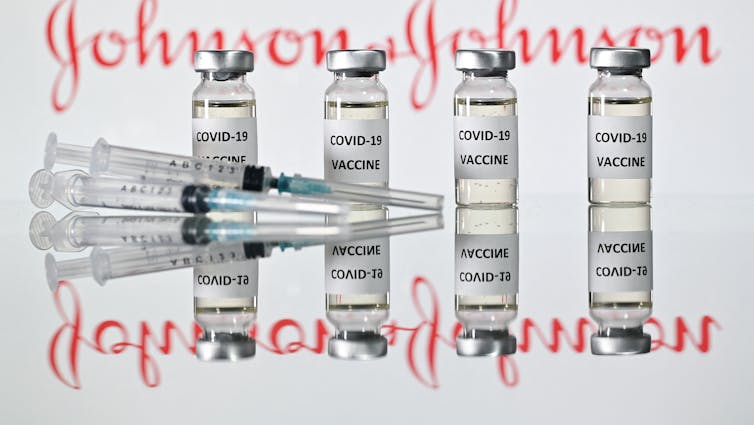Is the Johnson & Johnson vaccine dangerous or is the CDC operating with too much caution?

The potential side effect is a blood clot in the veins that drain blood from the brain. This is called central venous sinus thrombosis. In the vaccine-associated cases of this, platelets in blood, which are important for making clots, have been lower than normal. While researchers do not know for certain why this is so, platelet counts could be lower perhaps because they have been used up making these clots.
How many people have experienced this possible reaction?
getting struck by lightning in a year. What is being determined now is what is the normal background number of cases we might see in the general population without the vaccine as a factor. This will make it possible to determine if the clotting problem is a vaccine side effect or not.
Fortunately this type of blood clot is treatable with the use of blood thinners or anticoagulants. If a patient has low platelets, however, a doctor would not prescribe the widely used anticoagulant heparin but instead another kind of blood thinner. Untreated, these blood clots can be fatal.

What are the next steps?
The CDC will convene a meeting of the Advisory Committee on Immunization Practices on April 14, 2021. The ACIP is an independent board of 15 scientific and medical experts selected by the health and human services secretary that advises the CDC on vaccines for children and adults. People with ties to vaccine manufacturers are excluded from the ACIP membership because of potential conflict of interest.
The ACIP will review the available evidence and make recommendations to the CDC, based to a great extent on the likelihood that the complication is vaccine related.
Is this similar to what happened with the AstraZeneca vaccine in Europe?
A similar rare problem of blood clotting with low platelets in the cerebral venous sinus and also in the abdominal veins and arteries has been seen in connection with the use of theAstraZeneca COVID-19 vaccine used in Europe. There, 182 cases were reported in 190 million doses – again, roughly 1 in 1 million people vaccinated. The European Medicines Agency investigated this and concluded that central venous sinus thrombosis with low platelets should be listed as a possible “very rare side effect” of the AstraZeneca vaccine.
delaying the rollout of its vaccine in Europe in response to the U.S. review.
What is the take-home message?
[More than 104,000 readers rely on The Conversation's newsletter to understand the world. Sign up today.]
William Petri, Professor of Medicine, University of Virginia
This article is republished from The Conversation under a Creative Commons license. Read the original article.



